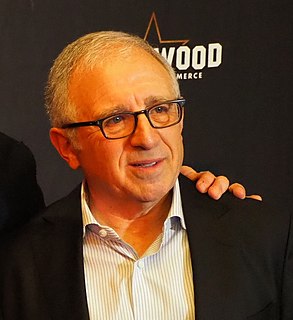Top 1200 Public Company Quotes & Sayings
Explore popular Public Company quotes.
Last updated on April 21, 2025.
Growth isn't central at all, because I'm trying to run this company as if it's going to be here a hundred years from now. And if you take where we are today and add 15% growth, like public companies need to have for their stock to stay up in value, I'd be a multi-trillion-dollar company in 40 years. Which is impossible, of course.
Mandatory auditor rotation is designed to address a potential conflict of interest between a public company and its auditor. Because an auditor is hired and paid by the public company it audits, the auditor's desire to maintain a good relationship with its client could conflict with its duty to rigorously question the client's financial statements.
Being captive to quarterly earnings isn't consistent with long-term value creation. This pressure and the short term focus of equity markets make it difficult for a public company to invest for long-term success, and tend to force company leaders to sacrifice long-term results to protect current earnings.
Profitability, growth, and safeguards against existential risks are crucial to strengthening a company's long-term prospects. But if these three factors constitute a company's 'hard power,' firms also need 'soft power': public trust and acceptance, won by fulfilling a company's social responsibility.
Shareholder activism is not a privilege - it is a right and a responsibility. When we invest in a company, we own part of that company and we are partly responsible for how that company progresses. If we believe there is something going wrong with the company, then we, as shareholders, must become active and vocal.
If the air quality is terrible in Los Angeles, if a particular university is unusually expensive, if crime is on the rise in Dallas, or if a company has a lot of recalled toys, transparency can spur change. Whenever public or private institutions have to answer to the public, their performance is likely to improve.
I think unfortunately in this gold rush mentality that we've been in for the last years there has been not enough focus on business model quality. So when push comes to shove, there actually aren't that many great businesses that can go public. Because I think if you're going to thrive as a public company, it presupposes that you make more money than you spend.

























































